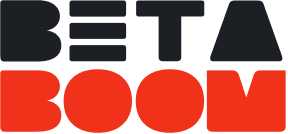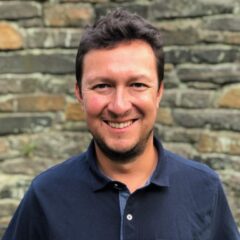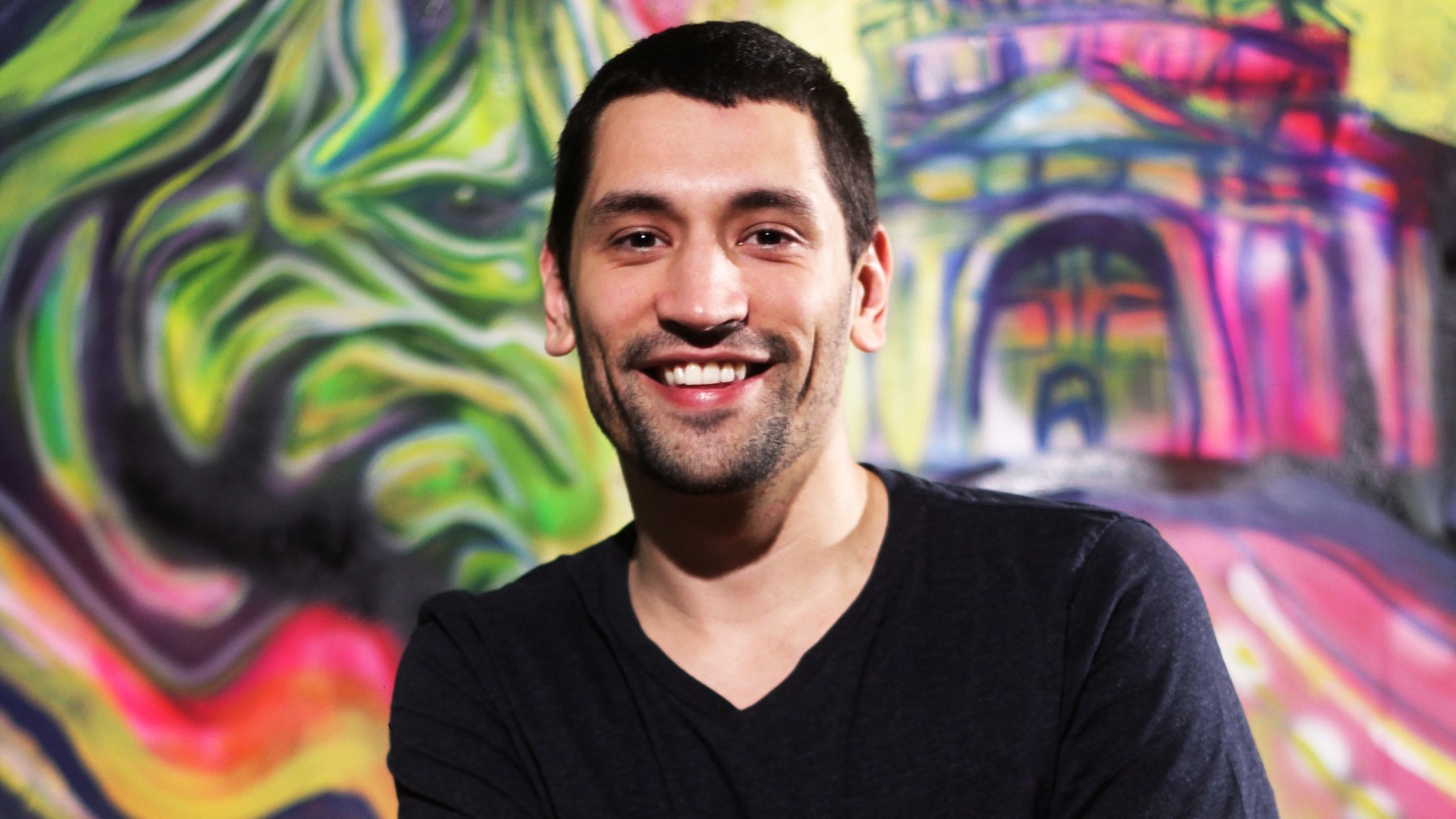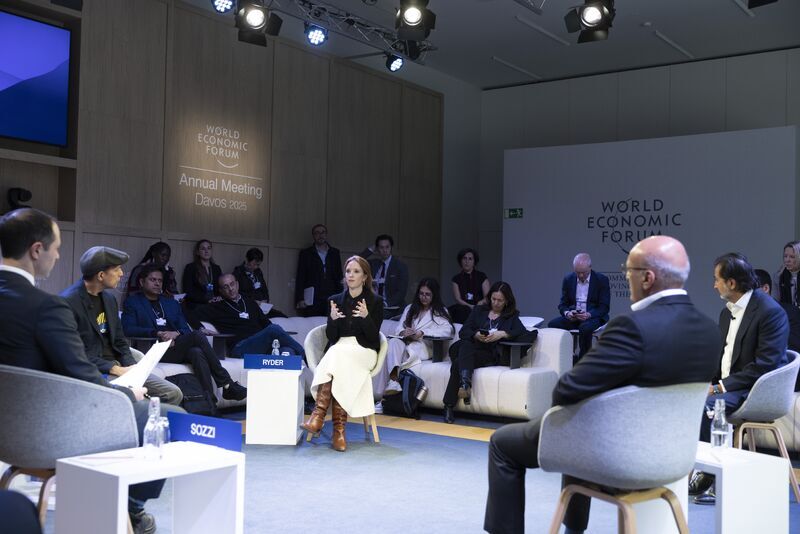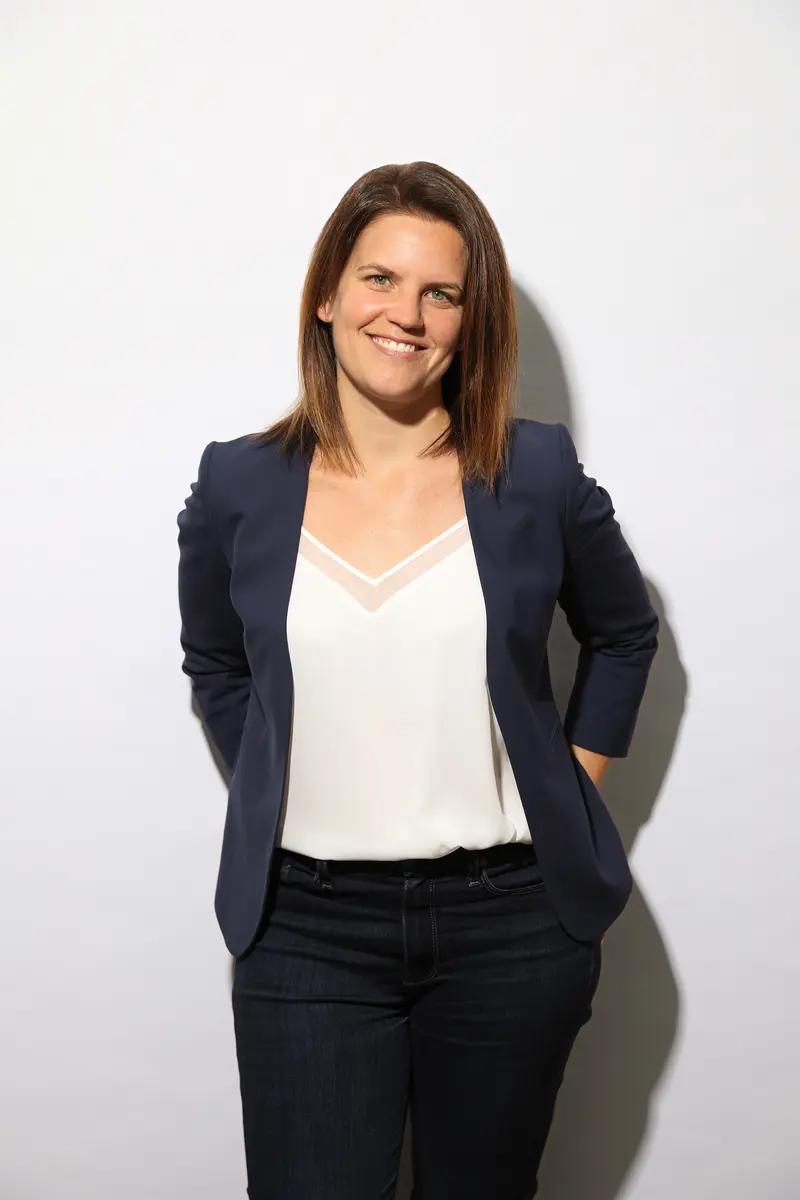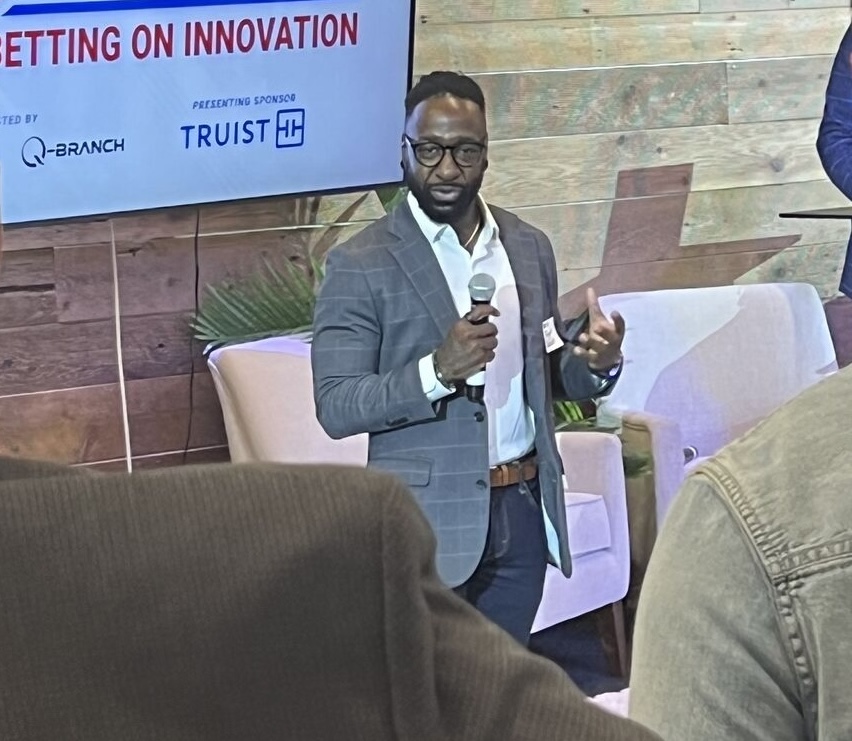Amanda started out as a Teach for America teacher in Skyline High School in Oakland, where she taught Advanced Placement U.S. and World History. After leaving the classroom, she still wanted to help all students do well on their AP exams and started tutoring students online.
Amanda didn't know it at the time, but she stumbled upon a model that really resonated with students and helped students pass their AP exams at twice the national average. She kept growing and evolving her model and went on to build one of the leading online social learning platforms—Fiveable.
In this episode of New Pattern Spotlight, we learn about the highs and lows of running a startup as well as the advantages that underrepresented founders like Amanda have. This candid interview with the founder of Fiveable is a must-watch!
Amanda is interviewed by Kimmy Paluch, Managing Partner at Beta Boom. Check out Fiveable at Fiveable.me.
Finding Purpose Beyond the Classroom
Kimmy: So, tell us who you are and what you do.
Amanda: My name is Amanda DoAmaral. I am the founder and CEO of Fiveable. We do livestream social learning for students and teachers, mostly in AP classes.
Kimmy: Awesome. So, tell us why you're doing what you're doing, and a little bit about your journey.
Amanda: It all kinda started as like from my experience in the classroom. So I went from teaching in Oakland to leaving the classroom like a lot of the other teachers do and then, tried to kinda like find my place outside the classroom and it was kind of students that sort of lit the way of what was next, and they needed support and so I was across the country, I started live streaming for them.
And then started using what I knew about how to teach AP world or other AP classes to help students out or to teachers out, and so all of that kind of it didn't start out as like I'm gonna build a startup, it started out as like I'm gonna help people with how I know I can help them and then it became there's actually a lot of need for this and like I need to figure out how to scale this because more people need it.
The Rollercoaster of Startup Life
Kimmy: And what surprised you most about running your own startup?
Amanda: Man, I think in the last year I think some of the biggest learnings there's kinda like two of them. One, I honestly never knew how high the highs could be and how lows the lows could be. Like going from like just like complete like on the floor, crying, calling my mom like one day to like a total swing the next week and getting opportunities and having people like see the vision with you like there's moments where you kinda think that you're crazy and then you keep like pushing through that.
And so I think like just knowing that like just that that keeps going is part of it. Second piece for me is just that I always have to keep listening to like the students and the teachers that I work with because they seem to like know what I should do next more than anybody. And so just like always keeping them as like our North Star has been sort of the biggest learning.
Kimmy: What would you say has been the hardest part? Like the lowest low or the hardest thing you've had to do?
Amanda: I mean I think that like that moment of like the lowest lows are just when you're like not sure what opportunity's gonna happen next, when you're just like out of money, you've been kind of dragging your team along with like a vision for so long and you're still just trying to get everyone like stay with me, we're still in this, we can still get there, this isn't over.
But then like knowing on my own that like I have no idea where I'm gonna pay everyone this month, or how I'm gonna pay the rent, or like what we're gonna do. Like I'm not thinking beyond like next month because I don't even know how I'm gonna make it through the month.
So like those pieces have definitely been the lowest pieces, but then like I think on the next stage, I think even when I do have the money the lows are sort of like what do I do with all of it, like how do I make sure not to like mess it up. Right? Like I wanna be able to like scale it right because I think it's we're honest to something. But I don't know how to so I think the next pieces of lows are gonna be like the pressure that comes with it of like you know, now there's like so many more people involved and so it's like how do I make sure to play all my cards right and so I can keep like growing.
The Fiveable House: A Startup Experiment
Kimmy: So tell us about the craziest thing that you've had to do to get to this point.
Amanda: Like without a doubt, the Fiveable House. Has to be, right, so like I was living at my mom's house without any other team, without any real like money. And so I knew I needed a team, I didn't know any marketers, developers, I didn't know anybody outside of my like universe of just teachers.
And so how do I move out of my mom's house, build a team, and like keep moving forward. The only was I could do it was to rent a house in Philly, convince people to come, live and work with me in the house for basically nothing. And it was nuts, like the whole thing was crazy.
And so even just writing that article, putting it out there. Plenty of the feedback I got was like this is ridiculous, nobody's gonna do this. So just like really having to like put yourself out there and be like here's an idea like if anyone's gonna latch onto it, great, we're gonna be able to go on to the next phase. If not, I'm gonna have to like pick up pieces and go, but it worked. And so like that's how we built our team, that's how we still lived in the five house, and we just sort of like moved the location of it but deciding to do that was like the craziest thing for sure.
The Advantage of Smaller Startup Ecosystems
Kimmy: You've mentioned Philly, and you've also been in Madison and Milwaukee, what do you think you may have gotten there that you wouldn't have gotten from like Silicon Valley?
Amanda: These like startup ecosystems are so much smaller. And so even just like pitching in this competition a few weeks ago, getting to the final round. I'm not competing against you know, 20 other ed tec even, or other outside of my verticle that are like really competitive.
And like one of the judges called us like the most exciting startup in Milwaukee right now. And like there's no way we'd get that title in the Bay Area, in New York, and even in Chicago. And so it's worth it for us to like be in a smaller place so that all of these different people can help us better and we can stand out easier.
Combating Founder Loneliness
Kimmy: So it's sometimes really lonely being a founder, people point to that a lot. Does that resonate with you?
Amanda: Yeah. I think Philly was the loneliest because those were the low, like different lows. And again, they sort of have a network of other people to talk to. And so I think the most important thing that came out of generator two was just like meeting so many people.
And so there are a lot of us out there and we just have to like kinda meet each other, and that's what we've been able to do here. And so I've made friends who are starting their own companies or going through the exact same things but like in their own way.
And so, it's hard because it's like your team doesn't really understand all the pieces of what you're dealing with, and nobody else like my family has no idea what I'm doing. They're like you know, yeah keep going, but like they don't really understand the in and out's of it. And so I have to be able to know other people who get it in order to like feel less lonely I guess.
Support Systems: Beyond Money
Kimmy: So who are some people who have been instrumental for you getting this far?
Amanda: Yeah, I mean definitely you guys. Deinitely like Beta Boom. Like I literally would not have even known that this was a startup until that. And so like getting a shot from nothing to something, and then since then, just like keeping those like mentors around.
And the new mentors that I've met with generator, just the different like people that I've met, the friends that I've met, the team. They're like my family like I've always had like my friends and family around, didn't look like money. It was literally like work like come live back at home, I will cook for you, I will you know, hold you and hug you and like talk through anything we need to talk through. And so like that's been my those were the investments that like my family made that like honestly, I'll take that any day over money so.
From Survival Mode to Vision
Kimmy: What's your proudest achievement so far?
Amanda: I mean so far is like getting through year one. I mean I don't know, like I feel like at the point I think one year ago, honestly there were so many times where I wasn't really able to like plan further ahead than like a month or two months.
And so like it was hard to like set like a big vision. People ask you like, what do you want this to look like in five years, half the time I was like well I don't even know if it'll like be a thing in five years. And so, it's hard to like get over that. That sort of like some of it's like impostor syndrome but a lot of it is more of just like I don't know how this is logistically gonna work.
And so I think the proudest achievement is just like getting to the point now where there's a team and there's like some funding and there's a like path forward. Like I actually see the whole next year, I see beyond that next year. And so like I can actually like plan for all those things.
Growth Plans and Big Vision
Kimmy: Tell us about that. What's your plan for next year and how we could look up to it?
Amanda: The plan is just grow. It's just like now that we kinda know some of the like levers to pull like we know we need to increase the live stream attendance and we know we have like a playbook. You know, we've done some things right and we've done some things wrong and so now we can sort of recreate what we've done that worked and do that in other places too.
And so the goal this year is to just get as many students and teachers as like humanely possible on our platform. And so if we go about this right, in the like new subjects that we're building, the way that we're building and different instructions, we should be able to have upwards of 200,000 people watching our live streams by the end of the school year.
And so with that like this really does become more of a movement and less of just like us throwing this like crazy idea out there. And so if we're able to grow that fast then everyone's gonna be watching us and figuring out like who are these people, like what are they doing.
Kimmy: And the vision for you know further than a year, like what do you want Fiveable to be ultimately?
Amanda: I think it's just like I think for students and teachers, there's not enough like space after school to actually get support. And so I think if there are like live streams happening all the time where people can just hop into whether you're in high school or you're in college or you're post-college and you're trying to figure out how do I do my taxes or like I just wanna learn about like astrophysics.
Like I think it'll be really awesome to have people who know things that are live teaching people who want to know things. And like that's kind of a broad way to put it and that like you know, right now you can someone play video games that's really good at playing video games. Like why can't I just like tap into some of the like expert knowledge that exists in really any industry. And so like just creating a better way for people to collaborate around learning. And so that it's not it's just so much more like democratized.
Learning Through Mistakes
Kimmy: What would you do differently if you had to do this all over again?
Amanda: I mean at this point I don't think I could've done anything differently because I wouldn't be where I am now if I had. I mean there's definitely like some like business things that were like mistakes last year but I had to make those mistakes to figure it out.
And they weren't like massive mistakes and so I don't know. I mean I think like I would've gotten an accountant sooner probably, and like had someone just like keeping track of everything on a spreadsheet 'cause that went out the window real quick. Besides like that, I really don't know what I would've done differently. I feel like I have come I have done this like really fast and so I would've done it a lot the same way.
Startup Advice: There Are No Rules
Kimmy: People get a lot of advice all over the place, so we wanna hear like what's the best advice you've received so far?
Amanda: Well honestly this is more of just like a combination of all the advice, there are literally no rules. There are none. And so like everyone will tell you something different and like no one actually knows what you need to do.
And they can all be right and they can all be wrong at the exact same time. And so like I don't know if I've gotten like one piece of advice that I'm just like this is it. I mean there's been some ways that people approach things that I really like. Like in you know, like kind of the like goals on shot approach. Like talk to as many people as you can and like someone will come through.
Like those have been like good pieces of like advice or approaches. But basically it's just like listen to everyone but don't listen to anyone at the same time is like the best way to do it because like there's just no other way to like they're making it up as you go, everyone's making it up as they go.
Kimmy: There are some pieces of advice that stick out as not being good, so can you think of like the worst advice you've ever heard?
Amanda: Yeah, definitely the one guy who told me to be less aggressive. When I like talked to him, I sent like cold emails out to like angels I gotta find. How am I gonna meet people if I don't send out cold emails? And the guy's saying like, oh you came across as too aggressive.
I'm like but I can't get to like the next piece if I'm not like people are gonna perceive me however they're gonna perceive me, and so I'm not gonna change the way that I like outrage to people because one guy was upset about that. And there's probably other people too that like.
We're trying to change the way that I like some of the like core pieces of it like someone didn't think that live streams was a good approach because there can always be like one troll in a live stream ruining it for everyone else and it's like anyone that has been focused on like the small percentage of people that could like you know, ruin something or harm like an experience, if you're too focused on those that tiny group like any of that advice is bad. It's more of just like focus on the bigger picture and the 98, 99% of people that are experiencing this. And then find ways to like get the smaller ones to stop.
The Underestimated Founder Advantage
Kimmy: Can you talk about some advantages you've felt from being an underrepresented founder?
Amanda: I think for me it's the way that I approach it because of the way that I've always had to approach things. Like I've always felt like I've had to work 10 times harder to get to do whatever I had to do. Whether it was as a kid or in college or wherever, like I knew I had to go faster and so I think that's how I've approached this entire thing.
I didn't have someone handing me money or handing me like keys to the next step and so I knew that I had to like kind of get there and so I was okay working a million hours a week or skipping you know a holiday or 'cause sometimes I'll think about like well everyone is taking today off, so like if I don't take today off I'm gonna get ahead.
And that's just kind of the way I've always approached it and so like I don't know if that's super healthy but that's what I've had to do. So that's where I'm at. But I think that's like part of the advantage is just knowing that like people are going to overlook me and so I have to shoot higher than they're gonna expect so that I can like come out on top. And so I think I see that as an advantage because I'm pretty sure that all female founders and founders of color operate in that way, and that's probably what like propels those businesses forward faster anyways.
Advice for New Founders
Kimmy: What advice do you have for founders starting out now or hoping to start out?
Amanda: I think just like get your vision as like clear as you can and like just keep pitching it to people. And like find as many people that will listen as possible and take on any opportunity you can get, like whether it's meeting with someone for coffee or getting to do an accelerator or anything.
No matter who someone wants to put you in touch with like go and talk to them so that you can like there's someone they can help. Right, there's like maybe they know someone who knows someone so like nothing is like beneath you at the early stage. And I think just like be as clever as possible to get through it. So like if whatever it is that's like in your way, how do you figure out a way around it?
Kimmy: All right and so if you had a genie in a bottle, what would you ask for?
Amanda: Oh man, that's a hard one. I think if had asked me that like six months ago I would've said like some money. Right now I don't think I'd say that, I think it's more I don't know. I feel like I do have a lot of the pieces that I need.
I think right now what I need is just like maybe if I had a genie in a bottle I'd want like someone really famous or someone to, like, yell about Fiveable from the rooftops. Like I just need like a little bit of a boost from like someone with a lot of like followers, you know. I'd want an Instagram influencer!
